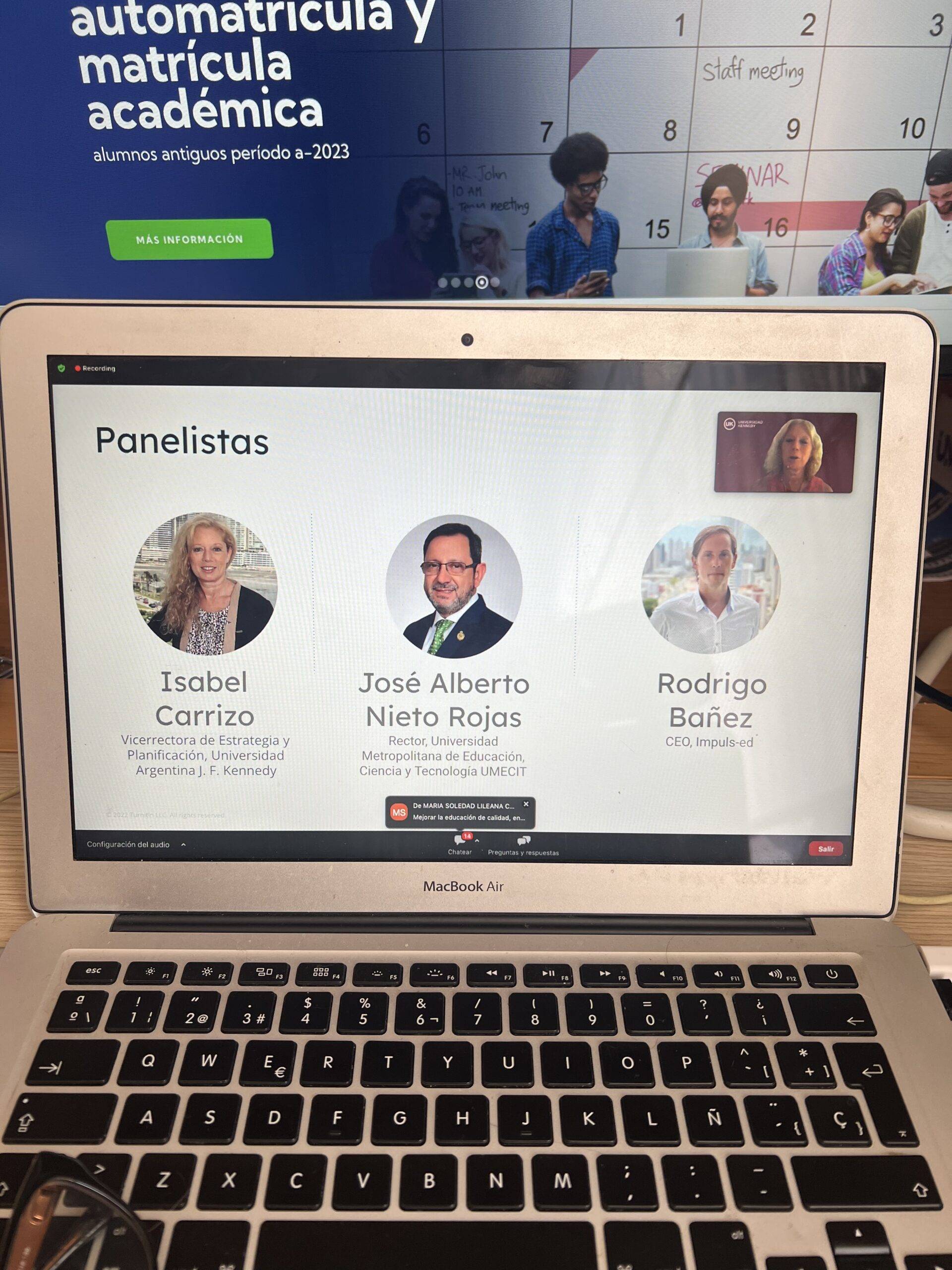With a panel of experts worldwide, it was carried out an interesting webinar where future trends and challenges in education were discussed, as well as the importance of technology and innovation as transformers in the way in which people learn and teach.
Within the framework of the event, José Alberto Nieto Rojas, rector of UMECIT, spoke of the importance of quality education from an early age, where human beings are acquiring knowledge and where the accompaniment of parents and educators is very important. "The baccalaureate must be comprehensive and must achieve a successful entrance to the university," he said.
Likewise, he explained that we are in a moment of permanent change that implies rethinking ourselves and having different alternatives, which entails working hard on teacher training.
"The pandemic caused these processes to accelerate, so institutions must be very consistent in digital transformation and use the most appropriate tools for our teachers and students" and added "the importance of training in ethical values and principles must be implicit in education on a permanent basis”.
He also referred to the role of research as one of the most important substantive functions where a research culture with social relevance must be created, "We have many problems that we can solve with students in the right way, from Mexico to Argentina, with research that be more qualitative than quantitative.
Regarding technology and new academic tools, regarding disruptive platforms such as ChatGPT, he pointed out that if they are used correctly, they should be seen as a benefit for modern education. "We have to see the good of artificial intelligence as the best ally to continue growing with tools in a more accurate way," said Nieto Rojas.
For her part, Isabel Carrizo, Vice Chancellor for Strategy and Planning at the Argentine JF Kennedy University and who was also a guest speaker at the webinar, explained that the change that is taking place thanks to technology is very dizzying and urged teachers to adapt to it.
What are the skills of our teachers today and how do they integrate with the skills that the pandemic left us? Because after Covid, new pedagogical models were put into practice, ideas that had been brewing were developed, that is, how are they assuming it?" Carrizo wondered.
He also pointed out: "The teacher needs to have the skill and they must be mentors to other teachers, the transfer of knowledge is not teacher-student but teacher-teacher and they must have the passion to share knowledge."
Rodrigo Bañez, CEO of Impuls-ed, noted that educational systems must be focused on social and humanist responsibility, with flexibility to change in everything that comes in the digital age, "which will not cease to surprise us, as it is artificial intelligence with its challenges and consumption habits” he stressed.
